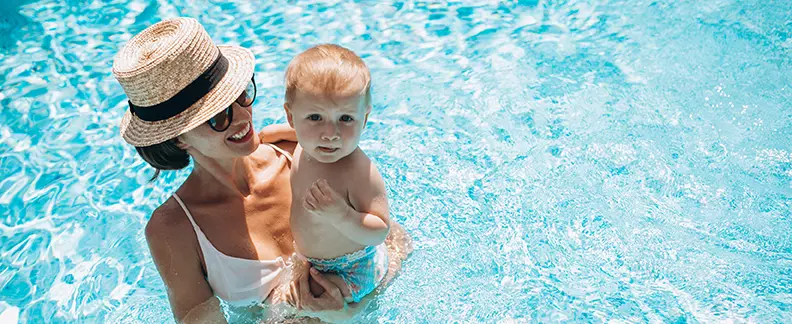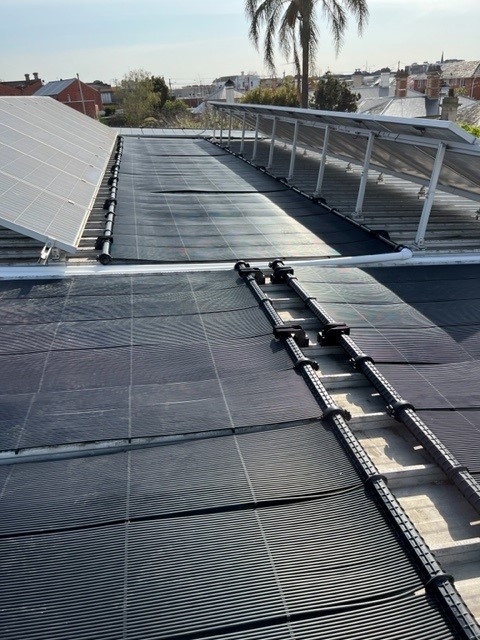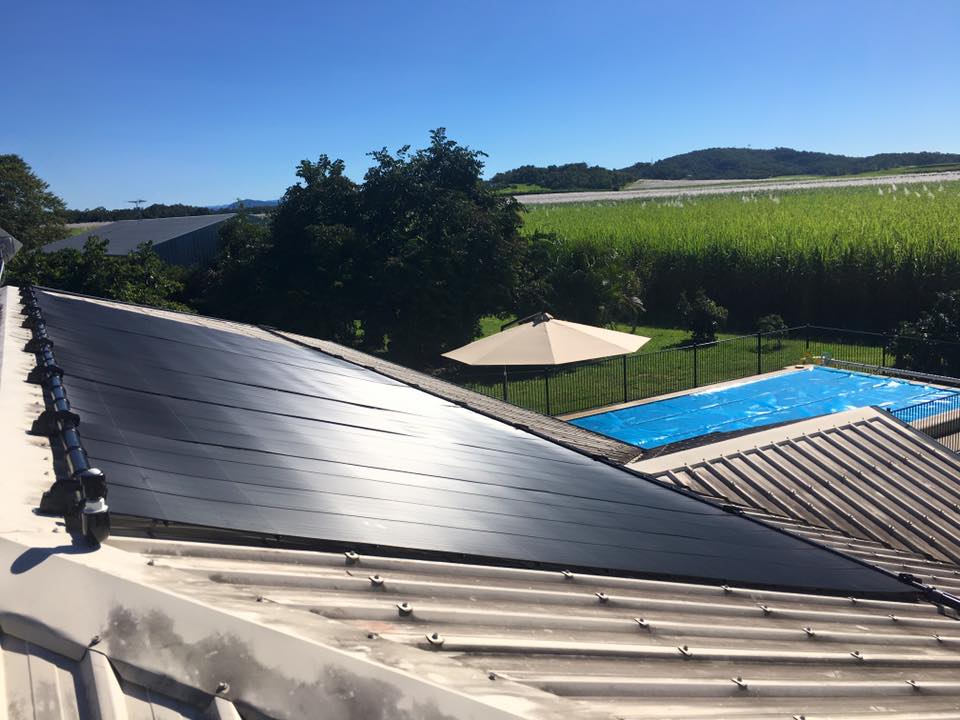Are you a proud owner of a swimming pool? If so, you may have heard about heat pumps and their ability to efficiently heat pool water. In this article, we’ll delve into the fascinating world of heat pumps and explore how they work. We’ll also introduce you to the concept of a hybrid solution, combining heat pumps with solar pool heating, for even greater energy efficiency and cost savings. So, let’s dive in and discover the inner workings of heat pumps for pool heating!
Investing in a pool heat pump provides several benefits that enhance your swimming pool experience. A heat pump extends your swimming season, allowing you to enjoy a comfortable swim even during cooler spring and autumn days. It achieves this by efficiently heating your pool water using the heat from the surrounding air, minimizing electricity consumption and reducing utility bills. Combining heat pumps with solar pool heating further maximizes cost savings by utilizing free energy from the sun. Additionally, heat pumps are environmentally friendly, utilizing renewable energy and producing zero greenhouse gas emissions. They offer versatile functionality, capable of cooling the pool water during hot summer months, providing year-round comfort and adaptability to changing weather conditions. By opting for a pool heat pump, you contribute to a greener future while enjoying the luxury of a heated and refreshing swimming pool.
How Do Heat Pumps Work?
Understanding Heat Pump Operation: A Simple Breakdown
A heat pump for pool heating operates by harnessing the heat from the surrounding air and using it to warm the water in your swimming pool. Let’s take a closer look at how this process unfolds:
- The Evaporator Coil: A pool heat pump utilizes a fan to draw in the warm air from outside that has been heated by the sun. This warm air is directed through an outer evaporator air coil. Inside the evaporator coil, liquid refrigerant absorbs heat from the air, causing it to transform into a gas.
- The Compressor and Condenser Coil: The heated gas is then pumped into the compressor, which increases its temperature, resulting in a very hot gas. This hot gas passes through the heat exchanger condenser coil.
- Heat Transfer to Pool Water: Simultaneously, the pool pump circulates the pool water, drawing it from the pool, passing it through a filter, and into the heat pump water heater. As the liquid refrigerant gas and pool water flow through the heat exchanger, the hot gas transfers its heat to the water. This process raises the water temperature by approximately 3-5 degrees Celsius. The now warmer water is then returned to the pool.
- Repeating the Cycle: After passing through the condenser coil, the hot gas cools down and returns to its liquid state. It then goes back to the evaporator, initiating the entire cycle again.
Exploring the Hybrid Solution: Heat Pumps and Solar Pool Heating
When it comes to pool heating, there’s an innovative and energy-efficient solution called the hybrid system. This hybrid solution combines the power of heat pumps with solar pool heating, creating a synergy that maximizes energy savings and extends your swimming season.
By integrating heat pumps with solar pool heating, you can leverage the abundant energy from the sun during the day to heat your pool. Heat pumps complement this by efficiently maintaining the desired temperature during cooler periods or at night when solar heating may be less effective. This combination allows for greater control over your pool’s temperature and reduces your reliance on traditional energy sources.

Discover the Top Questions About Heat Pumps for Pool Heating
Q1: Are heat pumps energy-efficient for pool heating?
Heat pumps are highly energy-efficient for pool heating. They utilize the ambient heat from the air, consuming minimal electricity to generate a significant amount of heat for your pool. However, their efficiency may vary based on factors such as outside temperature and desired water temperature.
Q2: Can heat pumps operate in colder climates?
Yes, heat pumps can operate in colder climates. While their efficiency may decrease as the outside temperature drops, modern heat pump technology allows them to provide effective pool heating even in colder regions. It’s essential to choose a heat pump model suitable for your climate to ensure optimal performance.
Q3: How long does it take for a heat pump to heat a swimming pool?
The time required to heat a swimming pool with a heat pump depends on factors such as
Q4: How long does it take for a heat pump to heat a swimming pool?
The time required to heat a swimming pool with a heat pump depends on factors such as the size of the pool, the initial water temperature, and the desired temperature. Generally, it can take anywhere from several hours to a couple of days to achieve the desired temperature. Patience is key, as the gradual heating process ensures energy efficiency and prevents sudden temperature fluctuations.
Q5: Can heat pumps be used for both heating and cooling a pool?
Yes, heat pumps can be used for both heating and cooling a pool. By reversing the cycle, heat pumps can extract heat from the pool water and release it into the surrounding air, effectively cooling the pool during hot summer months. This versatile functionality ensures year-round comfort and extends the usability of your pool.
Q6: Are heat pumps environmentally friendly?
Heat pumps are considered environmentally friendly for pool heating. They primarily rely on renewable energy from the air, reducing reliance on fossil fuels. Additionally, heat pumps produce zero greenhouse gas emissions directly, making them a sustainable choice for eco-conscious pool owners.
Q7: Are heat pumps compatible with different types of pools?
Yes, heat pumps are compatible with various types of pools, including in-ground, on-ground, and above-ground pools. They can also be used for other recreational water bodies such as spas, hot tubs, and swim spas. Heat pump manufacturers offer a range of models and sizes to accommodate different pool setups and sizes.
Conclusion: Understanding how heat pumps work is essential for domestic swimming pool owners seeking an efficient and cost-effective pool heating solution. Heat pumps leverage the surrounding air’s heat to warm the pool water through a clever refrigerant cycle. Combining heat pumps with solar pool heating in a hybrid solution provides even greater energy efficiency and extends the swimming season. By harnessing renewable energy sources, heat pumps offer a sustainable and environmentally friendly way to enjoy a comfortable swimming experience. So, take the plunge and explore the world of heat pumps for your pool heating needs!






